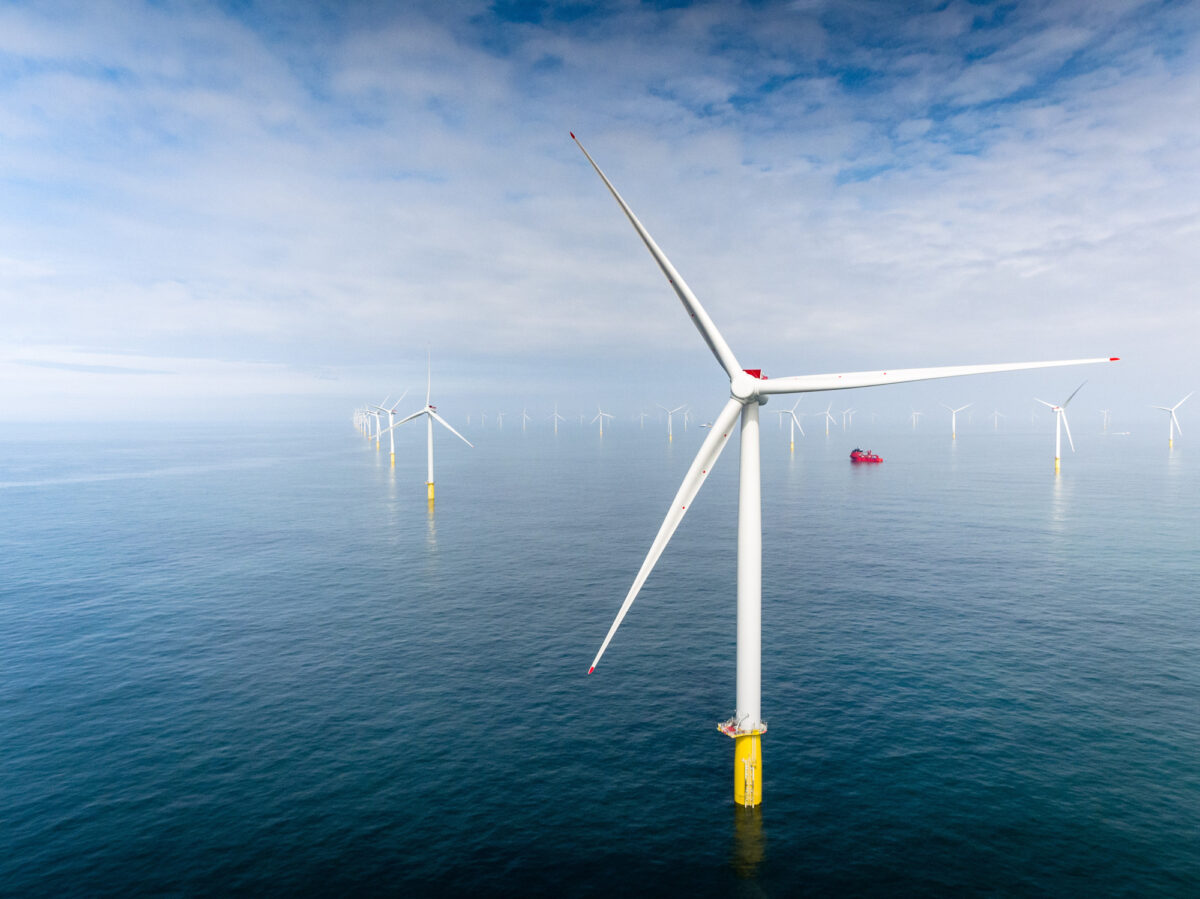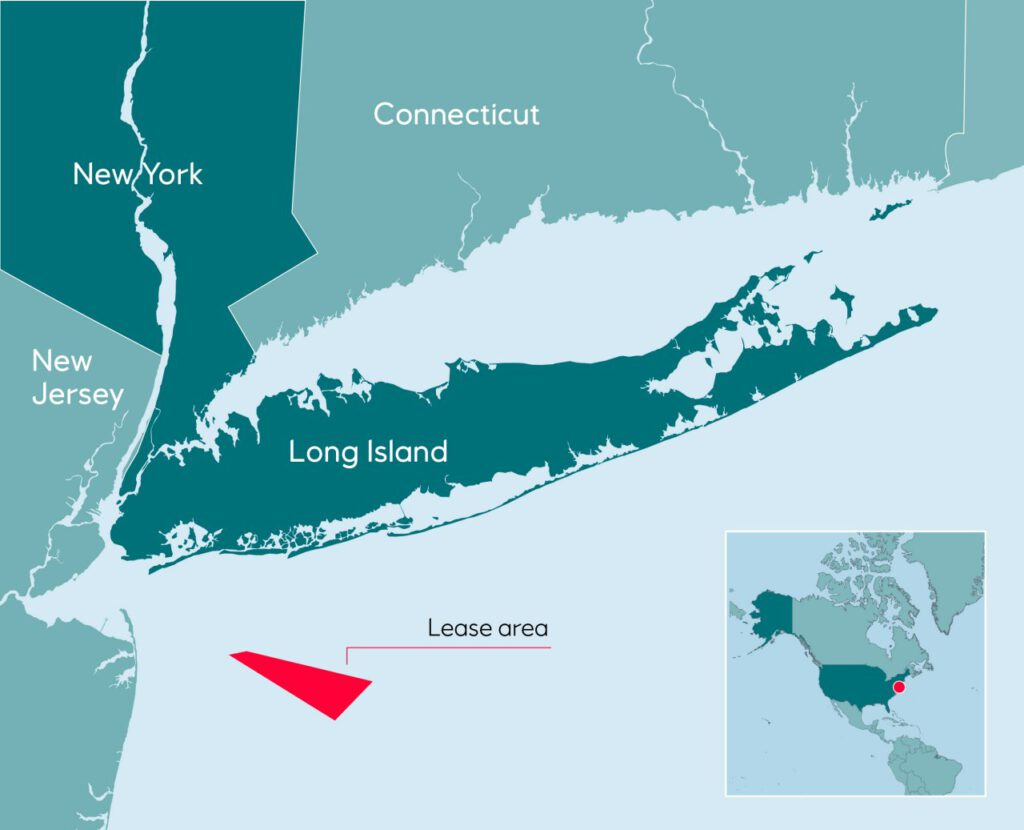 (Credit: Equinor)
(Credit: Equinor)The Biden-Harris administration has approved the Empire Wind offshore wind project – the sixth approval of a commercial-scale offshore wind energy project since President Biden was elected, following a rocky and uncertain start to the project.
Empire Wind, a joint project between Equinor and bp, proposes to develop two offshore wind facilities, known as Empire Wind 1 and Empire Wind 2. The lease area is located about 12 nautical miles (nm) south of Long Island, N.Y., and about 16.9 nm east of Long Branch, N.J. Together these projects would have up to 147 wind turbines with a total capacity of 2,076 MW of energy.
The project was originally on the chopping block after the New York State Public Service Commission denied petitions filed by a group of developers and a state renewable energy trade association seeking billions of dollars in additional funding from consumers for four proposed offshore wind projects and 86 land-based renewable projects. In October, developers who filed the petition, including subsidiaries of Orsted, Equinor, and bp, said that they were reviewing the Commission’s decision before reassessing their offshore projects, like Orsted’s 924- MW Sunrise Wind, Equinor/bp’s 816-MW Empire Wind 1, 1,260-MW Empire Wind 2 and 1,230-MW Beacon Wind.

Credit: Empire Wind
Since the start of the Biden-Harris administration, the Department of the Interior has approved the nation’s first six commercial-scale offshore wind energy projects. BOEM has held four offshore wind lease auctions, which have brought in almost $5.5 billion in high bids, including a record-breaking sale offshore New York and New Jersey and the first-ever sales offshore the Pacific and Gulf of Mexico coasts.
Feedback was gathered through nation-to-nation consultations with Tribes, input from federal, state, and local agencies, and from public meetings and comments in analyzing the project’s potential environmental impacts and developing possible alternatives and mitigation measures.
The Record of Decision includes measures aimed at avoiding, minimizing, and mitigating the potential impacts that may result from the construction and operation of the project. Among those measures, Empire Wind, LLC has committed to establishing fishery mitigation funds to compensate commercial and for-hire recreational fishers for any losses directly arising from the project.
The U.S. offshore wind industry is facing cost challenges across the board, as utilities and developers alike pay the price to pull out of agreements.
Ørsted recently scrapped 2 offshore wind power projects in New Jersey, citing supply chain issues. Now, the company is trying to get out of a $300 million guarantee it agreed to pay New Jersey in the event it failed to build its first wind farm off the state’s coast.